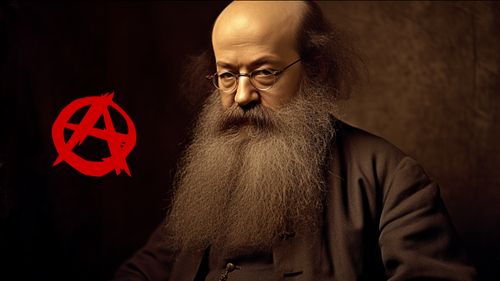The Ethical Rebellion of Peter Kropotkin: From Prince to Anarchist
Jan 29, 2024 · 2 mins read
0
Share

Peter Kropotkin: born a prince, died a revolutionary. His life was a journey from the lap of luxury to the forefront of anarchism, driven by a relentless pursuit of justice.
Save
Share
As a young man, Kropotkin served in the Tsar's army. But the stark inequality he witnessed stirred a deep unrest, turning the soldier into a skeptic.
Save
Share
In Siberia, he witnessed the harsh realities of serfdom and state oppression. These experiences were his political awakening, reshaping his view of society.
Save
Share
Kropotkin turned to science, particularly geography and biology, seeking answers. He found inspiration in nature, observing cooperation as a key survival strategy.
Save
Share
Rejecting Darwin’s 'survival of the fittest', Kropotkin proposed 'mutual aid' as a factor in evolution. For him, cooperation, not competition, was the driving force of progress.
Save
Share
His pivot to anarchism was driven by a belief in decentralization and mutual aid. He envisioned a society free from oppressive governments and exploitative economies.
Save
Share
Kropotkin's major work, "The Conquest of Bread", lays out a vision for a society based on communal ownership and distribution according to need, not wealth or status.
Save
Share
Arrested for his beliefs, Kropotkin became a symbol of the struggle against autocracy. His imprisonment only fueled his resolve and his writings.
Save
Share
Despite living through tumultuous times, including the Russian Revolution, Kropotkin remained critical of Bolshevik authoritarianism, staying true to his anarchist principles.
Save
Share
Peter Kropotkin's life story is a testament to the power of ethical conviction. From a privileged prince to a beloved anarchist thinker, his journey challenges us to rethink our societal structures.
Save
Share
0